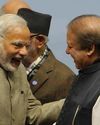India has tremendous heritage in the creative arts. Extending the protection of rights of individuals to a whole gamut of creativity will give the industry a great comparative advantage.

THERE IS MONEY in Intellectual Property Rights (IPR). In case you don’t believe me, I refer you to a “Paradise Papers”-related report in the New York Times on 6 November (“After a Tax Crackdown, Apple Found a New Shelter for Its Profits”), which suggests that Apple sheltered $200 billion worth of intellectual property in Ireland, using a peculiar provision in Irish law; $200 billion — a serious chunk of change.
India woke up relatively late to this fact and to the related fact that there is a global regimen of IP rights that you have to play in properly to get value out of it. The country has been busy fighting fires over IP (especially as related to the pharma industry and to accession to the World Trade Organization) and US Super 301 trade sanctions, and it was only in 2016 that a comprehensive IPR Policy was finally adopted. (Disclaimer: I was a member of the six-person panel that wrote it, but what I say here is my personal opinion, which may not coincide with the opinions of the Government of India or the rest of the panel).
There is a curious dichotomy in Intellectual Property. On the one hand, IP rights are private rights guaranteed by a government to the inventor or creator of something new, which, in effect, gives them monopoly power over the use of their idea. On the other hand, these rights are given for a limited period of time, so that the ideas can and eventually will be available to the entire public, in an equitable manner.
This story is from the December 2017 edition of Swarajya Mag.
Start your 7-day Magzter GOLD free trial to access thousands of curated premium stories, and 9,000+ magazines and newspapers.
Already a subscriber ? Sign In
This story is from the December 2017 edition of Swarajya Mag.
Start your 7-day Magzter GOLD free trial to access thousands of curated premium stories, and 9,000+ magazines and newspapers.
Already a subscriber? Sign In

Refuging Progess
There is a well-orchestrated global conspiracy to deny scientific and technological developments from the West to Third World countries.

The Monk Of Science
Vivekananda believed that Religion should be subjected to scientific methods of investigation. The third and concluding part of our series on the Swami and his views on science.
The Next Step
Indian technical manpower can be trained for high-value-added emerging services in the era of mass commoditisation of hardware.
The Threat Of Autarchy
The force of globalisation is an irreversible reality, and it is countries like India and China that will nurture it going forward.

Neanderthals: The Womb Of Caves
Recent discoveries indicate that Neanderthals may have had a rich inner life, including symbolic thought. Indeed, they may have been the progenitors of human religions.

Getting India's World Right
Incremental concessions will get India nowhere with Pakistan and China. What we need is a classically conservative foreign policy, based on realism.

The Hesitant Orbit
In order to march boldly ahead into the deep space, New Delhi must work towards building a station, boost its techno-economic planning and use the Indian Space Research Organisation smartly.

Nudges And Narratives
The debate surrounding Sanjay Leela Bhansali’s Padmavati brings India a complex network of portraits within a cultural world-system.

The Spell Of Specialisation
THE INDIAN ADMINISTRATIVE SERVICE NEEDS AN URGENT REJIG. THE KEY TO SPEED AND EFFICIENCY LIES IN PUTTING AN END TO A GENERALIST APPROACH AND IN GOING FOR A NEW SERVICE.
The Great Gamble
With demonetisation, the prime minister has taken a huge risk— both economic and political. He must succeed, because this move could transform both our economy and our society.